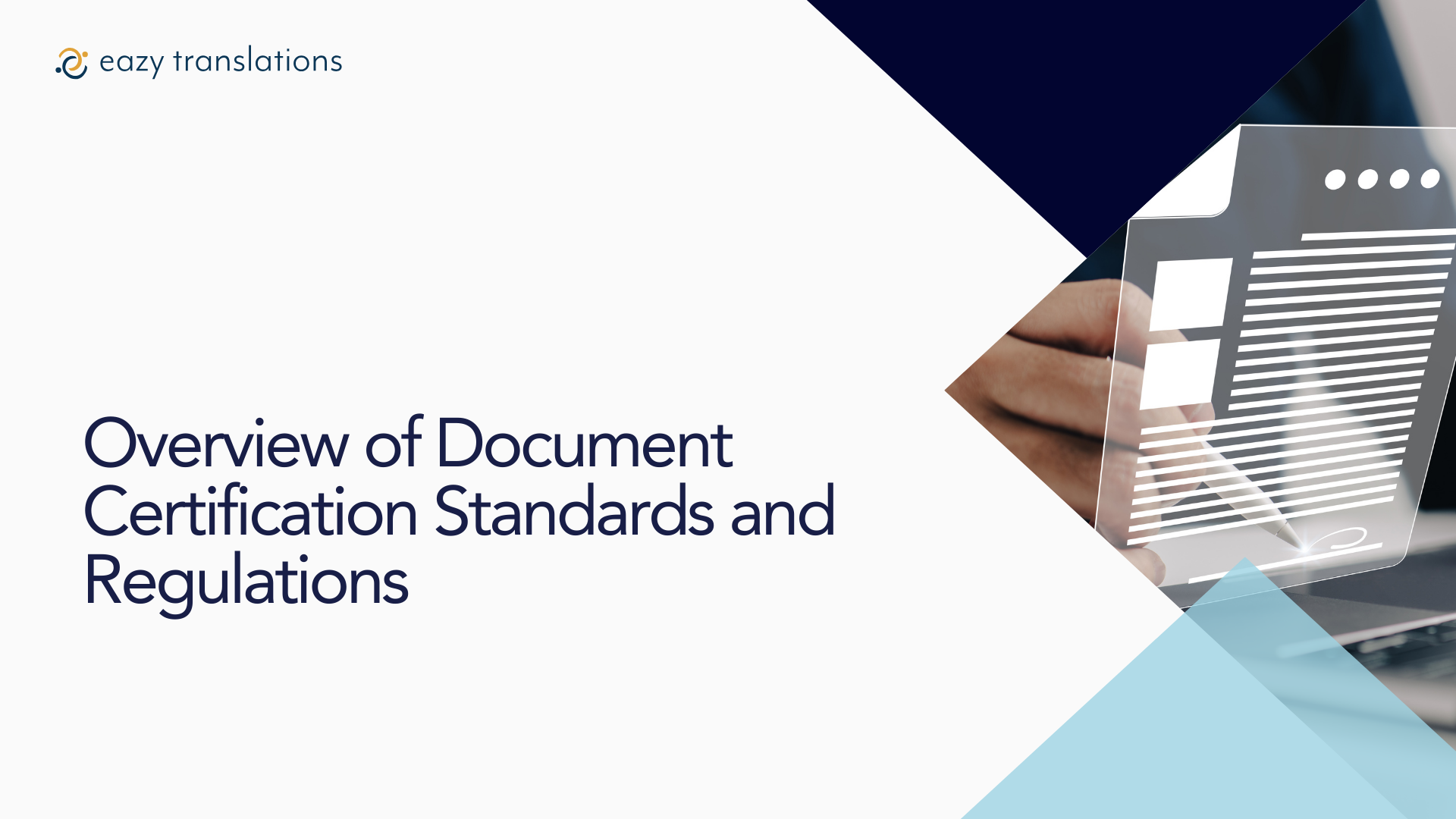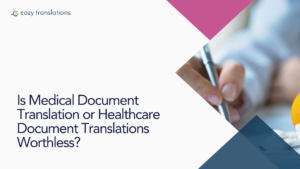Document certification is the process of verifying the legitimacy of a document by an authorized body. It involves confirming the origin, content, and sometimes the translation of the document. Certified documents provide a higher level of trust and credibility, making them readily accepted by official institutions and other parties involved.
Understanding document certification standards and regulations is essential for anyone working with international documents. This article provides a comprehensive overview of this complex topic, including the different types of certification, the role of standards and regulations, and the importance of accurate language translation services, specifically human translation services, in the certification process.
Contents
- 1 Types of Document Certification
- 2 The type of certification required for a specific document will depend on factors such as:
- 3 Standards and Regulations for Document Certification
- 4 The Importance of Accurate Language Translation Services
- 5 Here’s why accurate language translation services are critical:
- 6 Here’s where human translation services come in:
Types of Document Certification
There are several ways to certify a document, depending on the specific requirements and the context in which it will be used. Here’s a breakdown of some common types:
- Notarization: A notary public, a government-appointed official, verifies the identity of the signer and witnesses the signing of the document. This is a basic form of certification often used for personal documents like affidavits or statutory declarations.
- Apostille: An apostille is a standardized certification issued by a competent authority in one country for use in another country that is part of the Hague Apostille Convention. This simplifies the certification process for documents moving between signatory countries.
- Embassy/Consulate Certification: In some cases, an embassy or consulate of the receiving country may need to certify a document issued in the originating country. This typically involves verifying the authenticity of the issuing authority’s seal and signature.
- Professional Certification: Certain professions, such as accountants or engineers, may have specific certification requirements for documents they issue. These certifications are usually performed by relevant professional bodies.
The type of certification required for a specific document will depend on factors such as:
- The intended use of the document (e.g., legal proceedings, academic transcripts, business contracts)
- The countries involved (whether they are part of international certification agreements)
- The specific regulations of the receiving country
Standards and Regulations for Document Certification
Document certification standards and regulations are established by various bodies, including:
- International Organizations: The Hague Conference on Private International Law plays a significant role in standardizing document certification procedures through conventions like the Apostille Convention.
- National Governments: Each country has its own regulations regarding document certification and the authorities empowered to provide such services.
- Professional Associations: Professional bodies may have specific guidelines for certifying documents related to their respective fields.
These standards and regulations ensure uniformity, consistency, and security in the certification process. They typically address aspects such as:
- Authorized certification bodies: Who has the authority to certify documents for use abroad?
- Certification procedures: What steps need to be followed to obtain a certified document?
- Document requirements: What information and features must a document have to be certifiable?
- Language requirements: In some cases, regulations may specify the need for certified translations.
The Importance of Accurate Language Translation Services
In the context of document certification, language translation plays a crucial role. When a document is issued in a language not understood by the receiving country’s authorities, a certified translation becomes essential.
Here’s why accurate language translation services are critical:
- Ensuring Comprehensibility: Certified translations guarantee that the content of the original document is accurately conveyed in the target language. This is crucial for verifying the document’s validity and interpreting its meaning correctly.
- Meeting Legal Requirements: Some countries may have specific regulations regarding the qualifications of translators who can provide certified translations for official purposes.
- Maintaining Accuracy and Integrity: Human translation services are often preferred for certified translations over machine translation due to their ability to handle nuances, legalese, and cultural contexts more effectively.
Here’s where human translation services come in:
- Expertise: Professional human translators possess in-depth knowledge of both the source and target languages, including legal and technical terminology.
- Cultural Awareness: Human translators understand the cultural nuances and idiomatic expressions of both languages, ensuring an accurate and culturally appropriate translation.
- Attention to Detail: Human translators can meticulously review the translated document for accuracy and consistency, especially when dealing with critical information and legal aspects.
Choosing a reputable and certified translation service provider is crucial for obtaining reliable and legally recognized translations that meet international standards.
Conclusion
Understanding document certification standards and regulations is vital for anyone working with international documents. By utilizing the appropriate certification process and accurate language translation services, particularly human translation services, individuals and organizations can ensure the smooth flow of information across borders and achieve their desired outcomes, be it pursuing educational opportunities, engaging in international trade. For more information contact Easy Translations.





